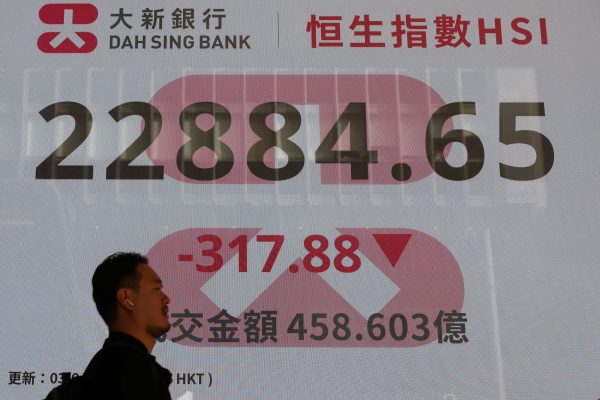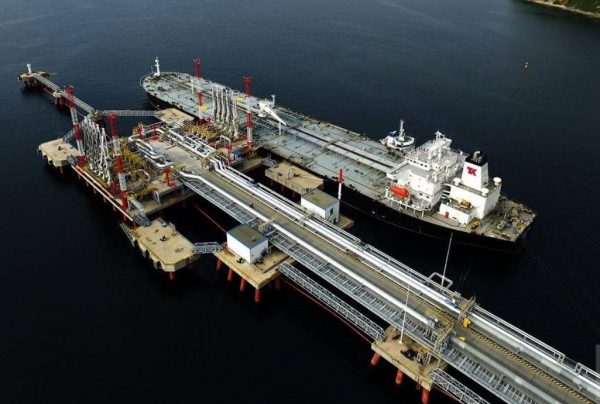
The Greek government has promised that it will keep its hand-off the current retirement age of 62 until at least 2027, but a TO VIMA report reveals that changes – possibly drastic ones- are imminent soon after on account of the worsening demographic issue in the country.
The Greek government is already tabling a set of 6 reforms to the pension system and promised not modify the retirement age before 2027.
But, the country has also mentioned that current legislation provides for the re-examination of retirement age limits in Greece—from 2027 onwards—which will be considered in conjunction with life expectancy and replacement rates in the country.
In the meantime, a study by the National Actuarial Authority reveals the impact that Greece’s demographics will have on the stability of the current pension system and presents a wide-range of scenarios for the measures that will have to be taken.
The Study
The study in spotlight is by the Hellenic Actuarial Authority and it highlights Greece’s dire demographic issue and its consequences.
The increase in life expectancy, combined with low birth rates and an aging population, will neccessitate an increase in the retirement age.
The report mentions the possibility that the legislated retirement age in our country could rise to 67.5 years from the current 62 years—with 40 years of insurance.
In the meantime, and until 2030, an increase in the current 62-year retirement age with 40 years of insurance to 63.5 years is suggested.
At the same time, the general retirement age, currently at 67 years, could reach 68.5 years by 2030 and 72.5 years by 2070.
Demographics and Pension Amounts
The report notes the possibility of reducing the replacement rate of pensions, which was 76% of income in 2022, to 65% by 2040 and 53% by 2070.
According to TO VIMA, the ratio of pensioners to workers, which indicates the “health” and sustainability of an insurance system, should be 1 pensioner to 4 workers.
Currently, the ratio in Greece is 1 pensioner to just 1.66 workers, or 100 pensioners per 166 insured workers contributing to the pension system.
By 2040, this number is expected to drop to 1.25 workers or 125 insured workers for every 100 pensioners.
Similarly, by 2070, each person aged over 65 will correspond to 1—or perhaps even fewer—economically active persons.
Proposals
The dilemma of “shock measures or funding the system” with additional resources amounting to 0.5% of GDP, has been highlighted by actuarial studies by Greek professors specializing in social security issues in recent years, says TO VIMA.
The measures they mention includ raising the retirement age to 73 years over 40 years, reducing pensions by 30%, and increasing insurance contributions to 35% (for primary and supplementary pensions).
These studies estimated that to mitigate the effects of the demographic problem, there are two alternative scenarios: either a) funding the system with additional resources amounting to 0.5% of GDP or b) implementing drastic measures such as reducing pensions by 30%, raising the retirement age to 73 years by 2070, increasing contributions for primary pensions from the current 20% to 27%, and for supplementary pensions from 6% to 8.1%.
Pension System Reforms in the Pipeline
Greece’s Ministry of Labor has already announced that it is planning more changes to the existing pension system in the autumn, through a new bill focusing on six key categories.
The measures will focus on changes to: solidarity contributions for pensioners, the 15-year minimum to obtain a supplementary pension, terms related to the current widow/widowers pension and pensions for those on disability.
It also plans to consolidate social benefits and in-kind provisions related to Greece’s largest social security organization EFKA, and will introduce a new formula to calculate pensions.
Source: tovima.com
Latest News

Cost of Living: Why Greece’s 3% Inflation Is Raising Alarm
Greece appears to be in a more difficult position when it comes to price hikes, just as we enter the era of Trump’s tariffs.

Fitch Ratings Upgrades the Four Greek Systemic Banks
NBG’s upgrade reflects the bank’s ongoing improvements in its credit profile, Fitch notes in its report, including strong profitability, a reduction in non-performing exposures (NPEs), and lower credit losses

Trump to Announce Sweeping New Tariffs Wednesday, Global Retaliation Expected
With Trump's announcement just hours away, markets, businesses, and foreign governments are bracing for the fallout of one of the most aggressive shifts in U.S. trade policy in decades.

Inflation in Greece at 3.1% in March, Eurostat Reports
Average inflation in the eurozone settled at 2.2%, compared to 2.3% in February

Greece’s Unemployment Rate Drops to 8.6% in February
Despite the overall decline, unemployment remains higher among women and young people.

Jerry Kalogiratos Highlights Key Role of Energy Transition and Data Demand in LNG Outlook
Energy transition and the prospects of LNG were discussed at Capital Link’s 19th Annual International Maritime Forum, during a panel discussion with Jerry Kalogiratos (Capital Clean Energy Carriers Corp.)

Santorini Safe and Ready for a Dynamic Tourism Season
Authenticity, cultural heritage, and genuine experiences at the center of Santorini's new promotional campaign

Electricity Bills: Greece Announces Reduced Tariffs Schedule
Greece will now offer lower electricity rates between 11:00-15:00 and 02:00-04:00

Chevron Confirms Eyeing Natural Gas Exploration South of Crete
Chevron recently declared its intent to explore a third area, south of the Peloponnese.

Evangelos Marinakis: A time of change from which shipping can benefit
Speaking at the 19th Annual Capital Link International Shipping Forum Evangelos Marinakis stressed the challenges that shipping faces today












![Τουρκία: Μεγάλες βλέψεις για παραγωγή ηλεκτρικών οχημάτων [γράφημα]](https://www.ot.gr/wp-content/uploads/2025/03/ot_turkish_autos-90x90.png)











![ΕΛΣΤΑΤ: Αυξήθηκε η οικοδομική δραστηριότητα κατά 15,6% το Δεκέμβριο [πίνακες]](https://www.ot.gr/wp-content/uploads/2025/03/DSC9655-2-1024x569-1-90x90.jpg)

















 Αριθμός Πιστοποίησης
Αριθμός Πιστοποίησης